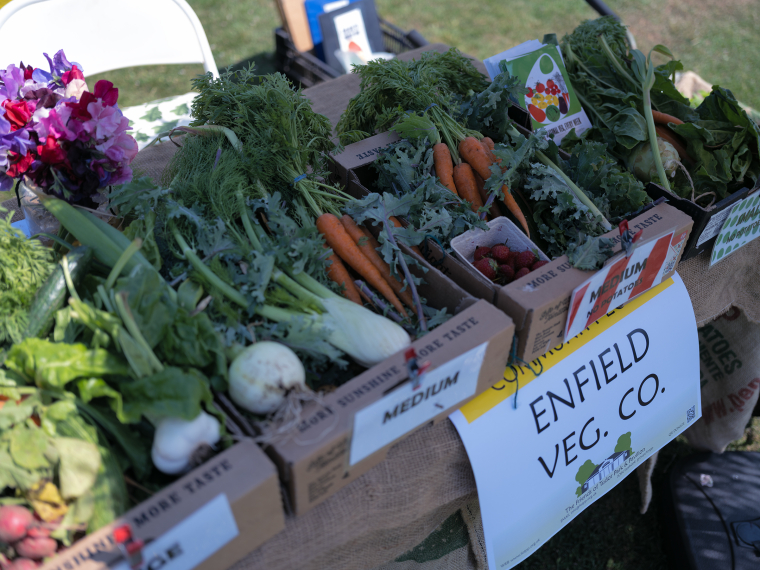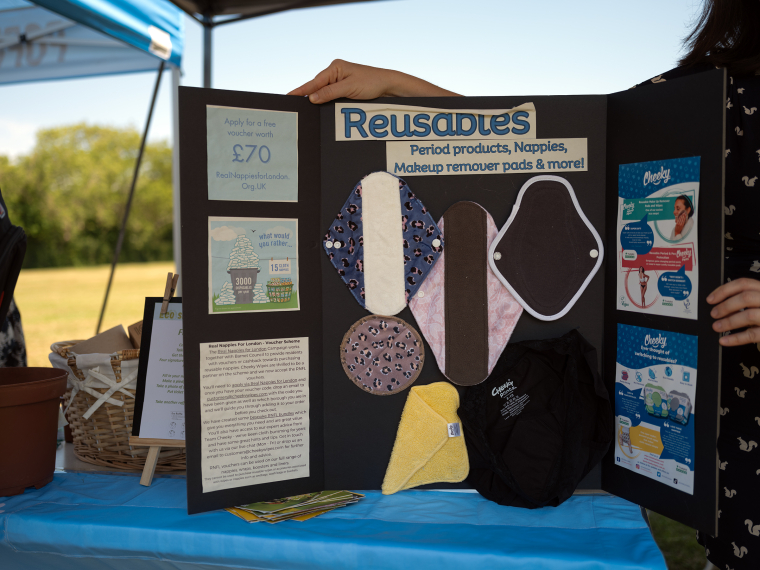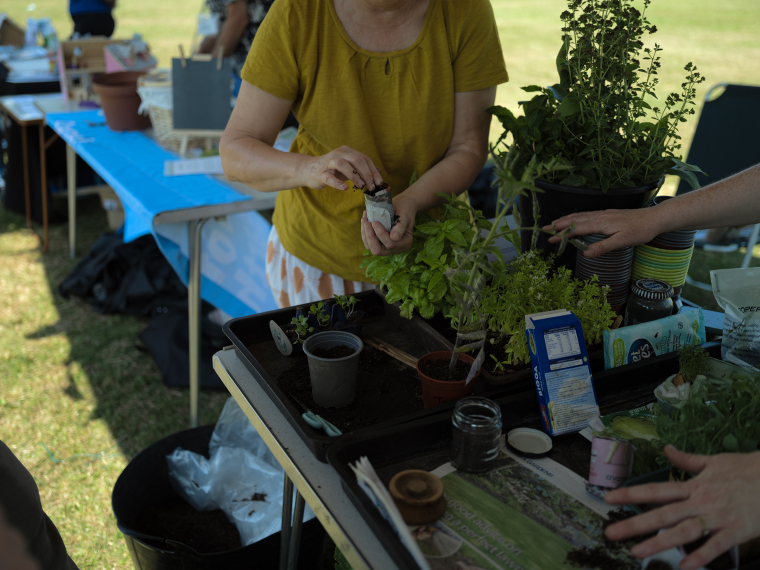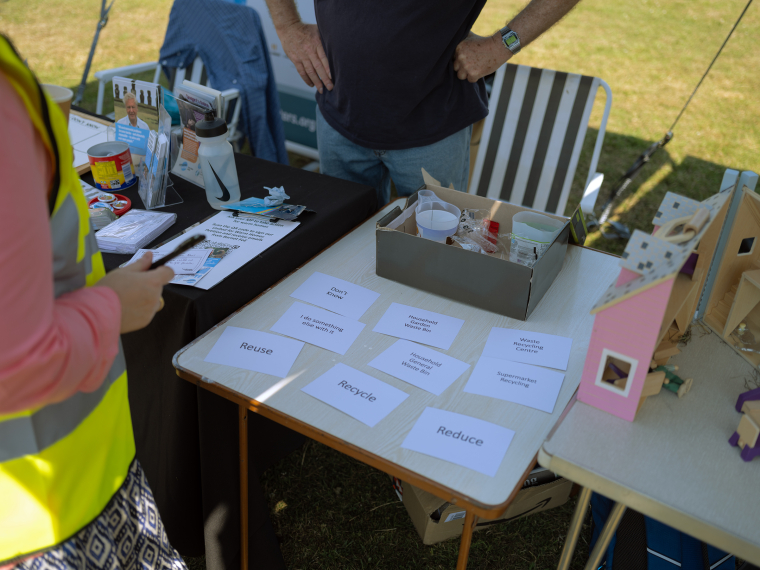Having become involved in the thriving local environmental sector, Shiri Atsmon wanted to bring people together to share their knowledge of climate change, waste and biodiversity.
As the global health pandemic began to ease, she launched the ‘Eco Show and Tell’ initiative in September 2021 to reach out to the wider community – including those who may not be aware of issues and solutions related to climate change.
With the help of our North London Community Fund, she has been taking her demonstrations and personalised advice to festivals and community events across Barnet in an attempt to change wasteful behaviour.
Shiri, who is a trained behaviour researcher, believes adopting small sustainable habits can help boost a sense of community, wellbeing and purpose.
She has shared her top tips if you’re ready to make a difference with some practical changes.

Start with an everyday change
If you’re motivated to reduce your waste, start with something that you use daily. This helps you see the impact of your choices more clearly, and hopefully encourage you to look for more changes to make.
For Shiri, that was moving from packaged fruit and vegetables to choosing loose produce from a local greengrocer.

Another example is milk. Have a look for a delivery service or refill shop in your area which offers reusable glass bottles instead of disposable plastic cartons.
If you wear makeup daily and use disposable wipes or cotton wool to remove it, consider switching to reusable remover pads.

Turn your food waste into compost
Even if you do your best to eat all of the food you buy, you will still be left with peels and shells.
Shiri recommends buying a compost bin for your garden or organising a communal one if you live in a flat.
You simply put your food waste inside alongside small pieces of paper and cardboard. It can take a year to fill up a bin and then it needs to sit for six months or so, but what you end up with is rich compost which is great for the garden.

Barnet Council and Camden Council both work alongside Get Composting to offer subsidised bins.
There are even indoor options available for those without outdoor space. Bokashi bins, which originate from Japan, use a fermenting process to create both liquid fertiliser and compost in record time.
Think twice before using your black bin
Your unwanted items have more value than you think, with apps and websites giving you the option to give your items away for free or sell them.
Vinted and Depop are great options if you have clothes in your wardrobe which need a new home.
Olio connects you with neighbours so you can give away surplus food. This is a great way to help others, declutter your cupboards and protect the planet from unnecessary waste.
You can put bigger items including furniture, toys and kitchen equipment on Facebook Marketplace and arrange for someone to collect them from your door.
The apps are all quick and easy to use – just take a quick photo on your phone, write a simple description and upload!

Keep a backup option
There are now great plastic-free personal care items available, from shampoo bars to reusable deodorant. It is understandable that you might be worried to try something new, so be kind and don’t put too much pressure on yourself.
Shiri recommends keeping your old products as a backup when you’re first starting out on your eco journey. You don’t want to be left without any period products if you fall behind on your washing, for example.

